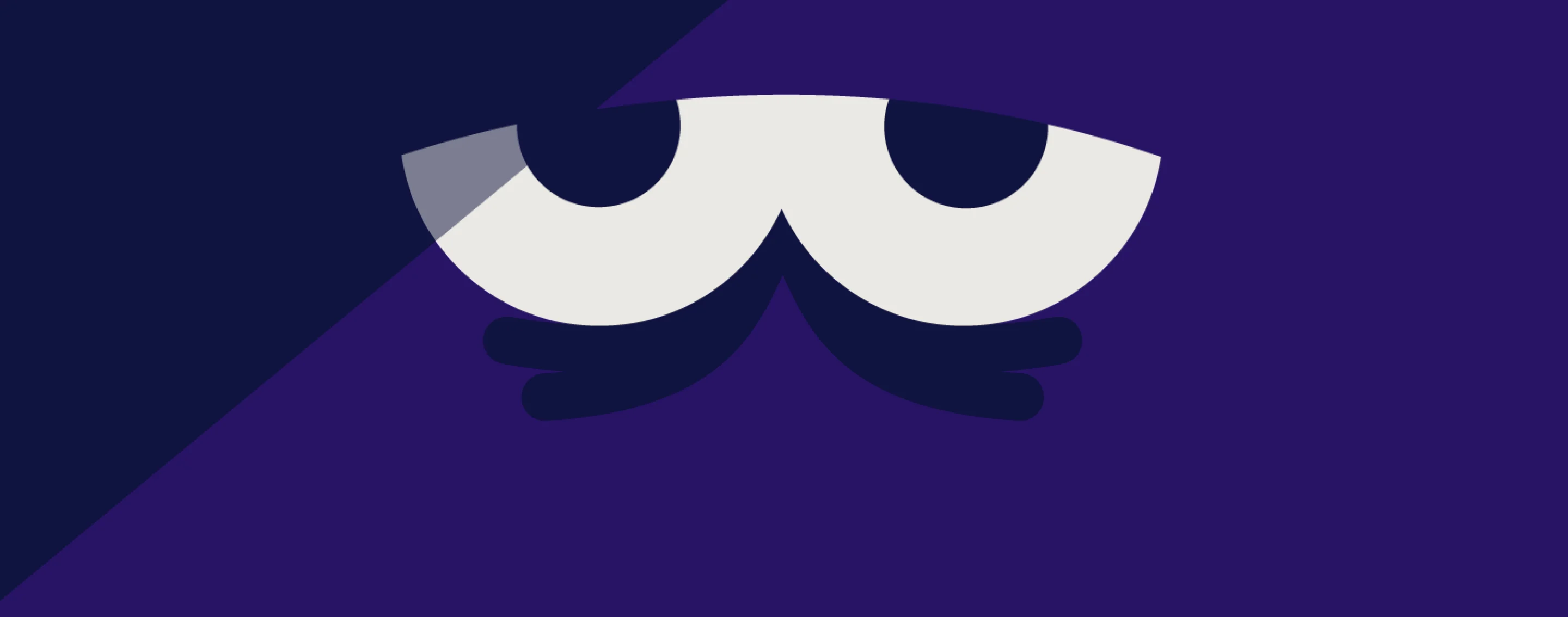Why am I always tired?
How many times a week do you find yourself struggling to get out of bed? Do you stay groggy throughout the day, still feeling sluggish? Have you ever been hit by a mid-afternoon wave of tiredness so hard that taking a desk nap feels like a real possibility?

For those who can relate to this experience, a frustrating and a familiar refrain arises: “Why am I so tired all the time?” The truth is, with more than a third of us not getting enough sleep, you’re not the only person wondering aloud over their third caffeinated beverage of the day.
Outside of an underlying medical condition, such as narcolepsy or sleep apnea, most cases of the daytime doldrums are a direct result of simply not getting enough rest at night.
A growing body of scientific research suggests that, in adults, executive function is deeply diminished when you’re tired. Your ability to complete tasks and remain goal-oriented might well be hampered, and episodes of forgetfulness might well increase, so don’t be surprised if brain fog means you can’t remember something you heard or read. There could also be a knock-on effect on your self-control as you opt for the easy snack, rather than cooking the healthy meal. These are common side effects of not enough quality sleep, as well as increased irritability and poor decision making.
What’s the solution? Better sleep hygiene.
Sleep hygiene and how it can make you feel less tired
What’s that you say? You’ve heard of dental hygiene, but not sleep hygiene? Establishing healthy habits around sleep is just as important as brushing and flossing your teeth twice a day. Sleep hygiene is a form of mind-body maintenance that sets you up for a restful night of sleep, meaning you feel less fatigued throughout the day.
There are many paths to better sleep hygiene, but one of the first steps you can take is setting and sticking to a schedule — going to bed and waking up at the same time. This means that your body clock becomes attuned to when you rise, and when you turn in.
Then it’s about making your environment more conducive to better rest. A comfortable mattress is the “bedrock” of sound sleep. If you share a bed with a partner, is it roomy enough to accommodate the two of you? If not, could you try a larger bed? The same goes for reviewing older mattresses, uncomfortable pillows, and bedsheets that make you too hot or cold. When you think of the hours spent sleeping and how much poor sleep can affect you the next day, these things are always worth investing in.
Light, temperature, and sound can disrupt slumber, so be sure the room is dark, cool, and insulated from noise. Black-out curtains can take care of obtrusive light, but if you’re like most people, sound insulating a room from noise isn’t within your monthly budget. Earplugs can drown out unwanted sound or listening to sleep music can create a relaxing atmosphere that transports you to a deeper sleep.
You can also consider a warm bath, reading a book, or light stretching — all are good pre-sleep exercises that help prepare you for bedtime by signaling to your brain that sleep is coming. There are a host of activities you can do to promote better sleep hygiene and once you start implementing them, you’ll wonder why you hadn’t established these routines sooner.
Working on improved sleep hygiene is a good place to start. However, there are other factors that might be contributing to your sluggishness:
Stress and sleep
Stress weighs heavily on the body in many ways, but one symptom of stress is fatigue. When you experience chronic stress, your amygdala — a small almond-shaped structure nestled in the underside of the brain — enlarges itself and produces cortisol and adrenaline — evolutionarily necessary hormones in the flight-or-fight response.
A small amount of these hormones is nothing to fret over, but if released in large quantities or too often, they have adverse effects on your health; causing headaches, chronic pain, frequent sickness, loss or increase in appetite, and disrupt sleep, leading to restlessness.
Everyone experiences stress differently, but if it is affecting your ability to sleep, worry not — there are ways to manage stress, and meditation is one of those avenues.
Meditation helps to prepare the mind for a quality night’s sleep. It simultaneously calms body and mind, and is a great way to unwind and lull yourself into the land of nod. Because a rested mind improves the prospects of a restful night’s sleep.
By better managing stress through meditation, you’re giving yourself an opportunity to step out of your head a little bit just before bed, rather than have your head hit the pillow and find that your mind is overrun with thoughts.
And if you have any doubts about whether meditation can manage your stress, there’s scientific evidence that suggests a meditation practice works to reprogram the brain. Meditation shrinks the size of the amygdala — that almond-shaped structure in your brain responsible for all those stress hormones — bringing it back to a more baseline level and reducing feelings of stress. In one study, Headspace reduced stress levels to lower than normal/average and in some instances, 30 days of Headspace reduced stress by a third.
If stress is keeping you up at night, consider a meditation practice to manage that stress throughout the day, so you’re set up for a relaxing evening. You can also find a nightly meditation that puts your mind and body at ease before lights out. The Headspace app has exercises that are aimed at both reducing stress and improving your sleep.
Sleep and depression
The connection between fatigue and depression is well documented. Being depressed can lead to a lack of energy to do even simple tasks, but it can also lead to insomnia, complicating your mental and physical health even further. Feeling tired is only one symptom in a larger array of depression-related signs, so if you suspect you’re always tired because of depression, it’s best to speak to a mental health professional to determine if depression is the source. If so, there are a blend of treatment options that can alleviate some of these symptoms, and possibly even the depression itself.
There are still ongoing studies around treatment options for depression, and each varies widely, but one prong in the fight against depression is mindfulness through meditation. Although it’s not possible to simply shake off depression or feelings of depression, it is possible that meditation can help ease those feelings.
There’s analytical evidence that suggests meditating has similar effects in reducing symptoms of depression when compared to pharmaceutical intervention. Furthermore, in a published study conducted at Google and Roche with 238 employees, 8 weeks of Headspace was compared to a wait list control group. The results showed that Headspace employees had a 46% reduction in depression and a 31% reduction in anxiety. Just as meditation helps rewire the brain to better handle stressful feelings, meditation can help reshape the brain so that it can better manage depressive thoughts.
Winding down
Finding the answer to the question, “Why am I tired all the time?” can be a difficult journey, as there is a myriad of possibilities for chronic fatigue. But acknowledging something is amiss with your mind and body is a good first step towards correcting it. Whatever it is you decide to change or implement in your life to feel less tired — whether that be more restful sleep, managing stress, or finding peace of mind — just know that Headspace is there to help you along the way.
If you’re new to meditation, Headspace is a good place to start. In addition to beginner meditation practices, there are plenty of exercises tailored to your specific needs that could put you on the path towards increased mindfulness. And of course, Headspace has an entire section of resources dedicated solely to sleep, that could help get you back to sleeping like a baby by night and feeling like a functioning, well-rested adult by day.


Sleep made simple
- Find your perfect bedtime routine with hours of relaxing music, sounds, and stories to choose from
- Get more restful sleep with our Sleep Health course: exercises developed with leading sleep scientists
- Feel your best from morning to bedtime with access to hundreds of stress-relieving meditations

Stay in the loop
Be the first to get updates on our latest content, special offers, and new features.
By signing up, you’re agreeing to receive marketing emails from Headspace. You can unsubscribe at any time. For more details, check out our Privacy Policy.
- © 2025 Headspace Inc.
- Terms & conditions
- Privacy policy
- Consumer Health Data
- Your privacy choices
- CA Privacy Notice



